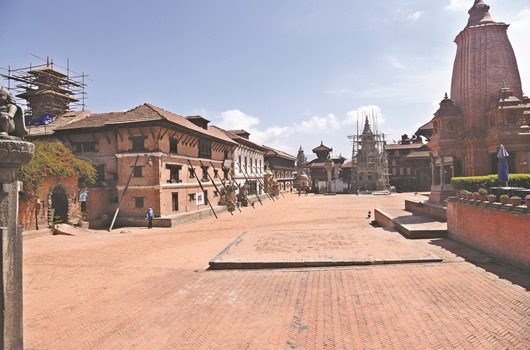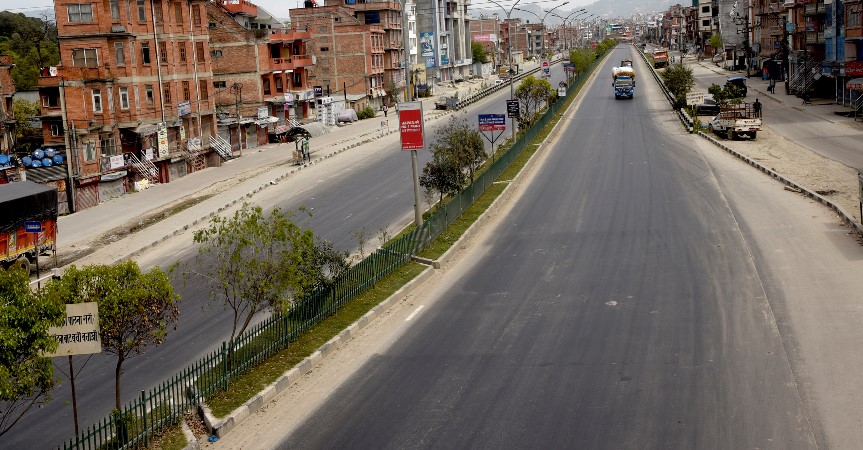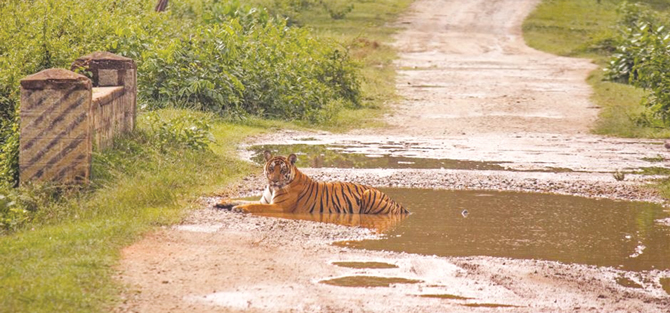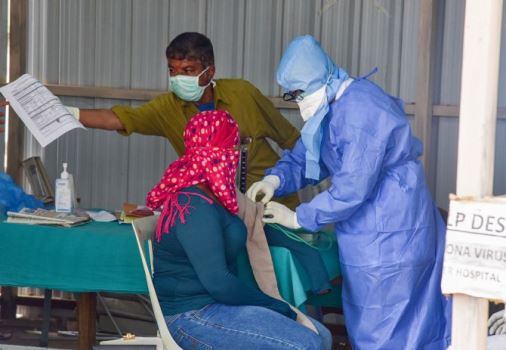Heed alarm bell of science on climate urgency, say experts

Kathmandu, Mar. 5: Nepali experts have said that the alarm bell sounded by the latest scientific report of the UN Intergovernmental Panel on Climate Change (IPCC) need to be duly heard and addressed considering the direct climate related threats the nation is facing on sectors like development infrastructure, agriculture and food security.
The IPCC report released recently warns that rising temperatures and resultant climate change is causing dangerous disruptions in nature. The report has pointed out to the urgency of taking action both on adaptation and mitigation fronts to minimise the risks. Or face untold calamities.
Talking in this context, climate change expert Manjeet Dhakal said that the report has made an urgent call for action, especially to the vulnerable countries like ours where climate change has a direct impact on food security, development and agriculture.
Dhakal, who is also head of the LDC Support Team at Climate Analytics based in Kathmandu, said that the report is a reality check that confirms the world has limited time to move on the right track to address the climate risks.
"If we cannot limit the temperature rise to 1.5 degrees, there are huge effects on countries like Nepal, where one-third of the glaciers are already melting in the mountains.
The climatic effects can be seen on wider sectors of economy and development. It is not only about the melting glaciers in the mountains, it also has adverse effects on agriculture, energy generation and tourism," Dhakal said.
Extreme weather events are occurring in recent times, causing devastating impacts that are increasingly difficult to manage. The problems are visible in health, social, economic, and ecological sectors, Dhakal said.
Climate change calls for adaptation measures to address the problems in the short term while in the long run, the dangerous phenomenon needs to be reversed by putting a cap on the emissions of greenhouse gases that trap heat in the atmosphere.
The report has addressed the adaptation issue for the first time but we say that adaptation alone is not enough. Now we have entered into the phase of loss and damage which should be addressed through due compensation to sufferers, Dhakal said.
The report has referred to the issues of Nepal and given examples of vector-borne disease in the Himalayan region, projecting that they will increase in the future. “It also presents various examples of climate change effects that are affecting the mountainous districts of Nepal for the first time," Dhakal said.
The report says three billion people on earth are highly vulnerable to climate change and developing and underdeveloped countries are even more vulnerable to its impacts, said climate change expert Raju Pandit Chhetri.
“The findings of the report are relatable to the countries like ours which are dependent on agriculture for livelihood and economic growth,” Chhetri said.
Extreme events like flashfloods and landslides are increasing and the report has ringed an alarm to a nation like ours, he added.
“This report is a dire warning about the consequences of inaction,” Hoesung Lee, Chair of the IPCC, has said.
It shows that climate change is a grave and mounting threat to our wellbeing and a healthy planet. Our actions today will shape how people adapt and nature responds to increasing climate risks, Lee said.
The IPCC is the UN body for assessing the science related to climate change. It was established by the United Nations Environment Programme (UNEP) and the World Meteorological Organisation (WMO) in 1988 to provide political leaders with periodic scientific assessments concerning climate change, its implications and risks.
Recent News

Do not make expressions casting dout on election: EC
14 Apr, 2022
CM Bhatta says may New Year 2079 BS inspire positive thinking
14 Apr, 2022
Three new cases, 44 recoveries in 24 hours
14 Apr, 2022
689 climbers of 84 teams so far acquire permits for climbing various peaks this spring season
14 Apr, 2022
How the rising cost of living crisis is impacting Nepal
14 Apr, 2022
US military confirms an interstellar meteor collided with Earth
14 Apr, 2022
Valneva Covid vaccine approved for use in UK
14 Apr, 2022
Chair Prachanda highlights need of unity among Maoist, Communist forces
14 Apr, 2022
Ranbir Kapoor and Alia Bhatt: Bollywood toasts star couple on wedding
14 Apr, 2022
President Bhandari confers decorations (Photo Feature)
14 Apr, 2022









